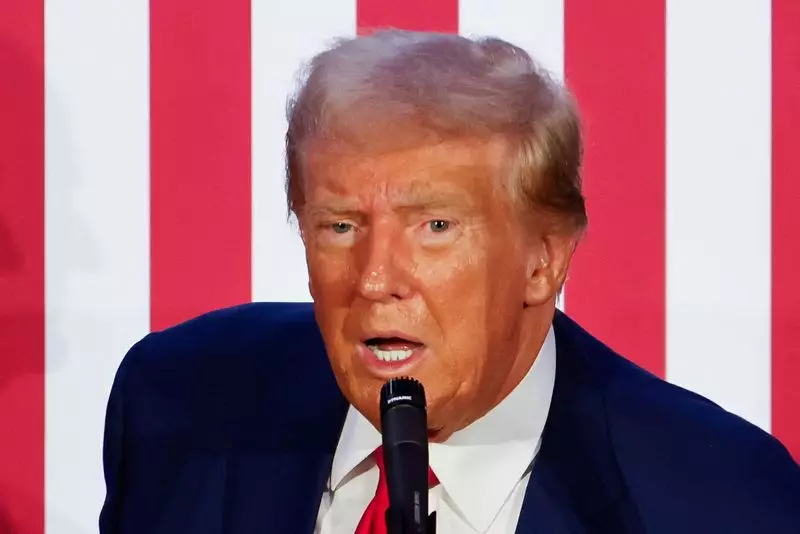As the United States gears up for a pivotal presidential election, market analysts are acutely aware of the possible repercussions stemming from a Republican victory. Charles Gave of Gavekal Research has issued a more than cautious outlook, entreating investors to prepare for significant shifts should the GOP achieve a decisive win. His assertions highlight not only the uncertainty embedded within electoral processes but also the tangible economic impacts that such political outcomes can generate across global markets.
Currently, the eurozone grapples with a pervasive economic malaise, accentuated by France’s surging deficits and unsustainable debt levels. Gave’s alarmism is rooted in these prevailing conditions and suggests that a burgeoning Republican influence might exacerbate these issues. The fundamental concern here lies within the structural weaknesses of the eurozone; should U.S. economic policy pivot sharply under Republican governance, the flow of capital may skew dramatically, leaving European financial markets vulnerable to volatility.
The comparison to historical patterns offers a sobering perspective. Gave draws parallels between today’s scenario and the 1980 U.S. elections, particularly with the subsequent ascension of Ronald Reagan. This shift ushered in substantial changes to national economic strategies. A Republican resurgence could instigate similar policy alterations, which may trigger ripple effects in international markets, particularly in Europe.
Should the Republicans gain both the presidency and significant legislative power, we might witness a landscape reshaped by aggressive economic reforms, notably tax cuts and reductions in federal expenditure. The implications of these reforms are multifaceted; a decline in domestic regulatory burdens could, theoretically, invigorate U.S. corporate profitability. However, Gave warns that this might occur at the expense of foreign markets, particularly those within the eurozone.
He posits that increased U.S. interest rates — a likely scenario following a Republican win — could lead to a rise in long-term borrowing costs across major economies. For France, where economic conditions are already teetering, such developments could spell disaster, leading to an untenable financial predicament. Investors would be wise to contemplate their strategies in anticipation of these scenarios, particularly concerning the euro and French bonds, whose values may suffer severely.
Gave’s warnings extend beyond mere speculation. He ominously forecasts that France could find itself in a financial quagmire akin to past crises witnessed in Latin America, Asia, or Greece. Such historical analogies serve as stark reminders that economic mismanagement in a changing political environment can yield dire consequences.
As the election approaches, the financial community must remain cognizant of the potential repercussions stemming from a Republican victory. The intricate relationship between U.S. policies and global markets suggests that investors should not only monitor domestic developments but also recalibrate their portfolios to mitigate risks associated with an unstable eurozone. The dynamic interplay of politics and economics illustrates the importance of foresight in investment strategies, especially in the current climate of uncertainty.


Leave a Reply